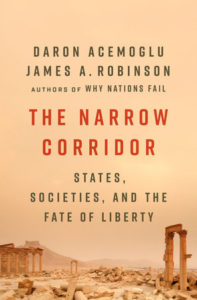 The world quickly becomes unsafe in the absence of U.S. power and will. Ceding ground to dictators is destined to work about as well today as it did when it was last tried in the 1930s, the New York Times’s Bret Stephens contends.
The world quickly becomes unsafe in the absence of U.S. power and will. Ceding ground to dictators is destined to work about as well today as it did when it was last tried in the 1930s, the New York Times’s Bret Stephens contends.
A Venezuelan activist offers a painful insight into the nature of autocratic rule….
Last Thursday, after my colleague, former councillor Edmundo Rada (known as “Pipo”), had been missing for hours, I received two messages. The first was that Venezuela had won a seat on the UN Human Rights Council. The second was that my colleague, a prominent critic of the regime, had been murdered. Venezuela defeated Costa Rica 105 to 96 in a secret ballot at the UN General Assembly: 105 nations had decided to overlook the violent brutality of the regime of Nicolás Maduro, Isadora Zubillaga
Pipo was found shot in the neck, a bag over his head, his body burnt. Even in this moment of agonising grief, I was struck by the fact that many in the international community still do not understand the level of repression, torture and death that Venezuelans face every day.
I shed tears for Pipo, just as I had for so many before him. Human Rights Watch estimates there have been nearly 18,000 extrajudicial executions committed by the police and security forces since 2016. The Maduro regime stains its UNHRC seat with the blood of the many thousands it has tortured and murdered.
 In a healthy democracy, power starts at the top — and the bottom, argues K. Sabeel Rahman, president of Demos, associate professor of law at Brooklyn Law School and co-author of “Civic Power: Rebuilding American Democracy in an Era of Crisis.” Which is why the framework in Daron Acemoglu and James A. Robinson’s “The Narrow Corridor: States, Societies, and the Fate of Liberty” offers a powerful starting point for understanding the many perils facing aspirations for democracy and liberty today, he writes for the Washington Post:
In a healthy democracy, power starts at the top — and the bottom, argues K. Sabeel Rahman, president of Demos, associate professor of law at Brooklyn Law School and co-author of “Civic Power: Rebuilding American Democracy in an Era of Crisis.” Which is why the framework in Daron Acemoglu and James A. Robinson’s “The Narrow Corridor: States, Societies, and the Fate of Liberty” offers a powerful starting point for understanding the many perils facing aspirations for democracy and liberty today, he writes for the Washington Post:
- First, it helpfully recalibrates our American tendency to collapse debates over freedom into a binary clash between the narrow liberty of “free markets” on the one hand, and the economic and political freedoms provided by social-democratic “big government” on the other. As Acemoglu and Robinson note, threats to freedom don’t stem just from the overbearing state that is the boogeyman of most libertarian attacks on economic regulation. Freedom is also lost when a weak state leaves in place social norms and systems that perpetuate racial hierarchies and economic insecurity — what the authors call “Paper Leviathans.” ..
 Second, Acemoglu and Robinson rightly emphasize that freedom “cannot be engineered” through perfect institutional design. Rather it is a “messy process,” requiring mobilization, conflict, pressure and institutional change over time. .. Constitutional checks and balances are not self-executing, and the abstract appeal to the rule of law is of little force in the face of authoritarian leaders once they achieve a foothold of power. Real accountability and freedom require genuine political power and mobilization from the bottom up.
Second, Acemoglu and Robinson rightly emphasize that freedom “cannot be engineered” through perfect institutional design. Rather it is a “messy process,” requiring mobilization, conflict, pressure and institutional change over time. .. Constitutional checks and balances are not self-executing, and the abstract appeal to the rule of law is of little force in the face of authoritarian leaders once they achieve a foothold of power. Real accountability and freedom require genuine political power and mobilization from the bottom up.- Third, Acemoglu and Robinson’s framework helpfully puts social movements and civil society back into the picture of democratic consolidation. Progress, the authors remind us, is driven by social movements that mobilize and pressure policymakers to develop new institutions. Think of how labor rights and social insurance emerged from the first Gilded Age, as policymakers had to respond to labor organizing and mass-movement politics…..At the same time, civil society pressure is not always progressive: Demands for equity and democracy provoke backlash, and those backlashes can fuel more authoritarian movements and leaders; the authors cite examples like the rise of fascism in 1930s Europe or Augusto Pinochet’s Chile….







